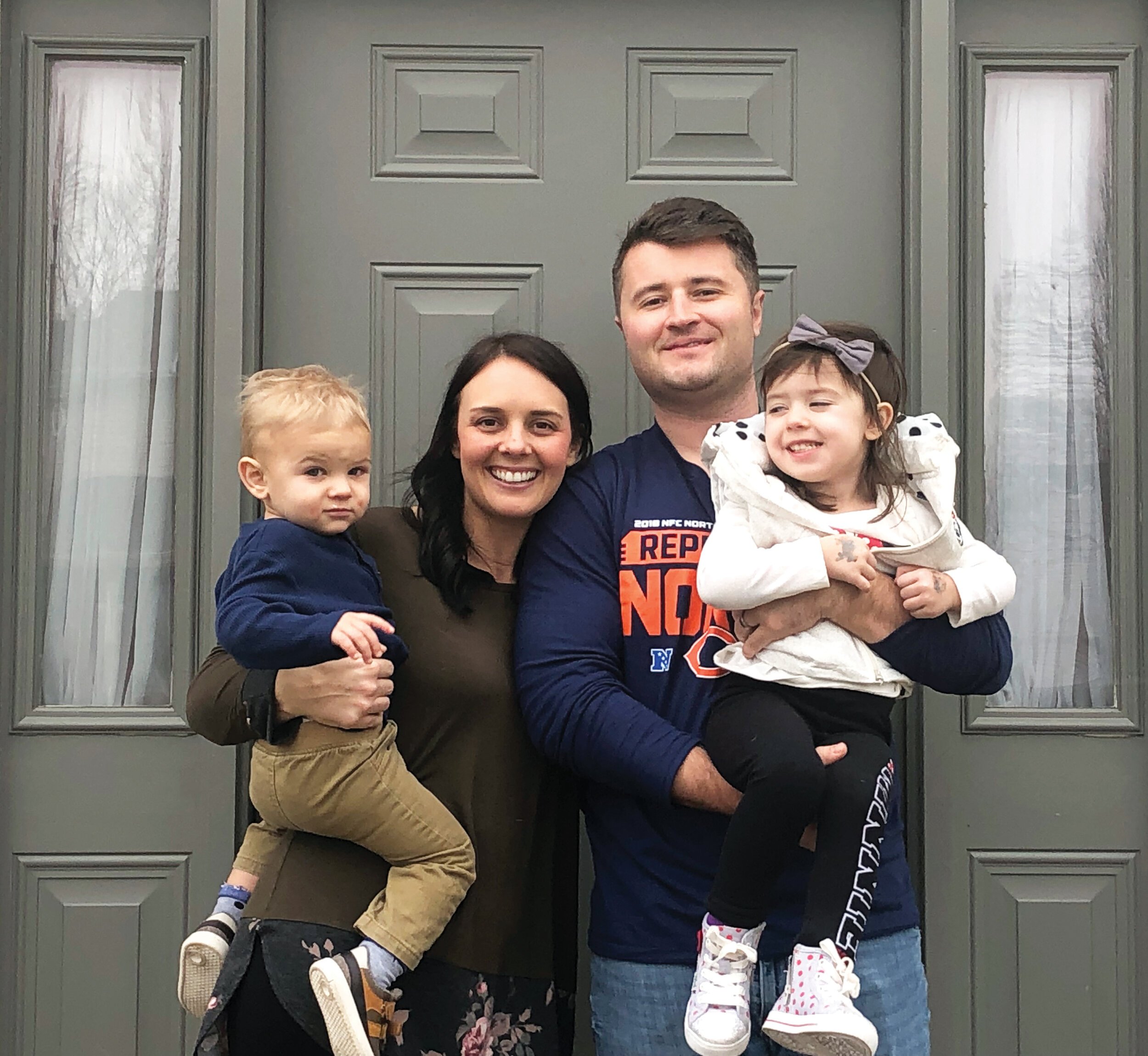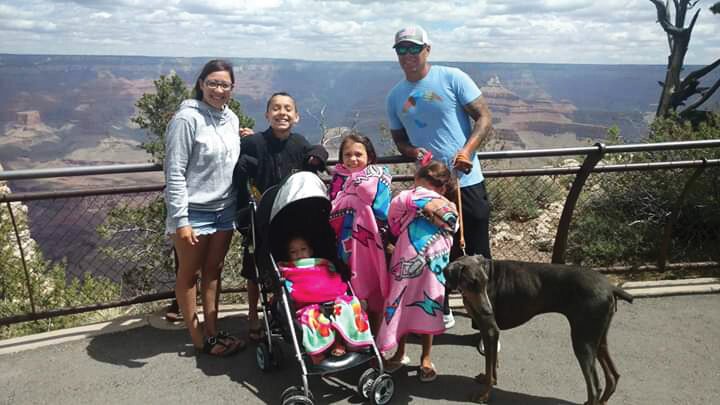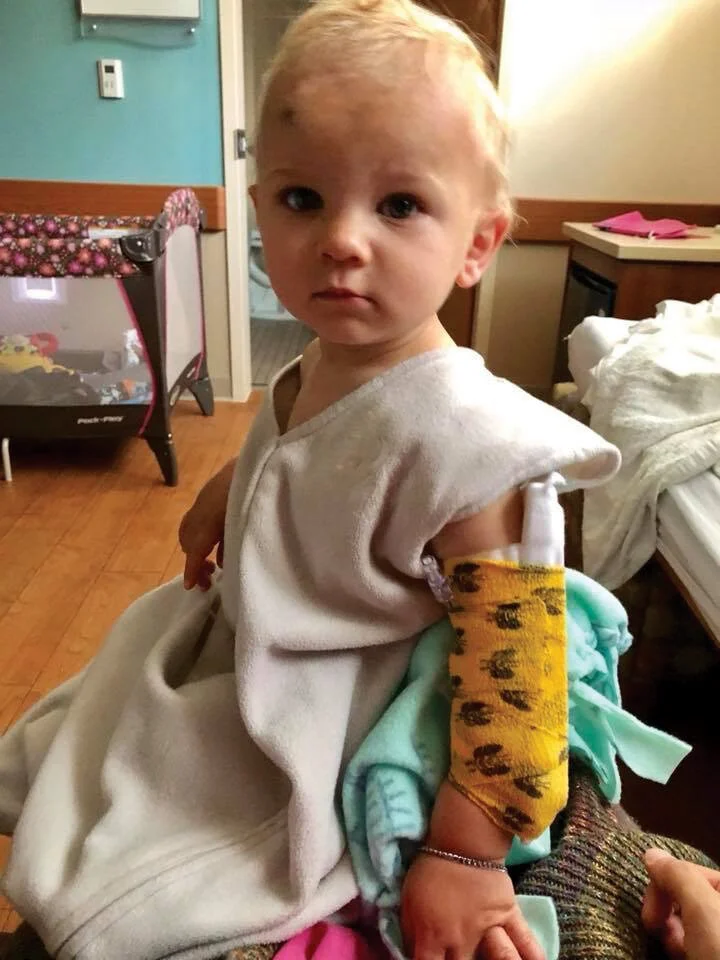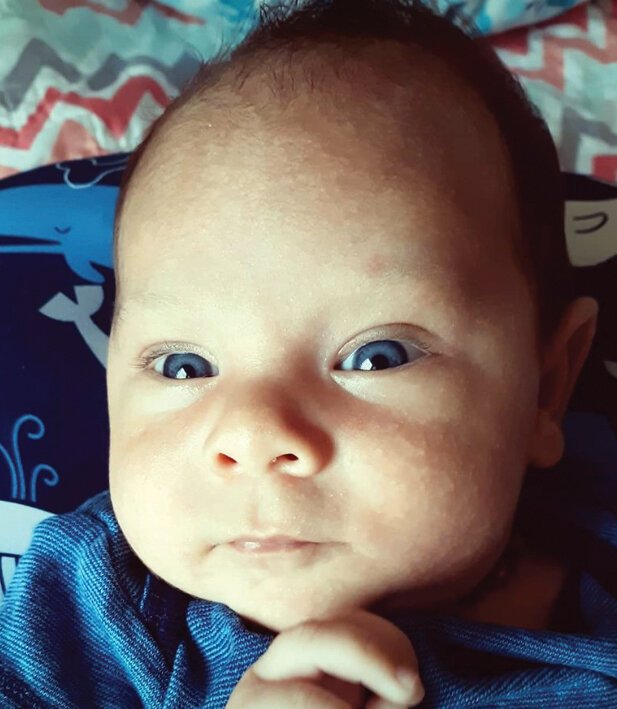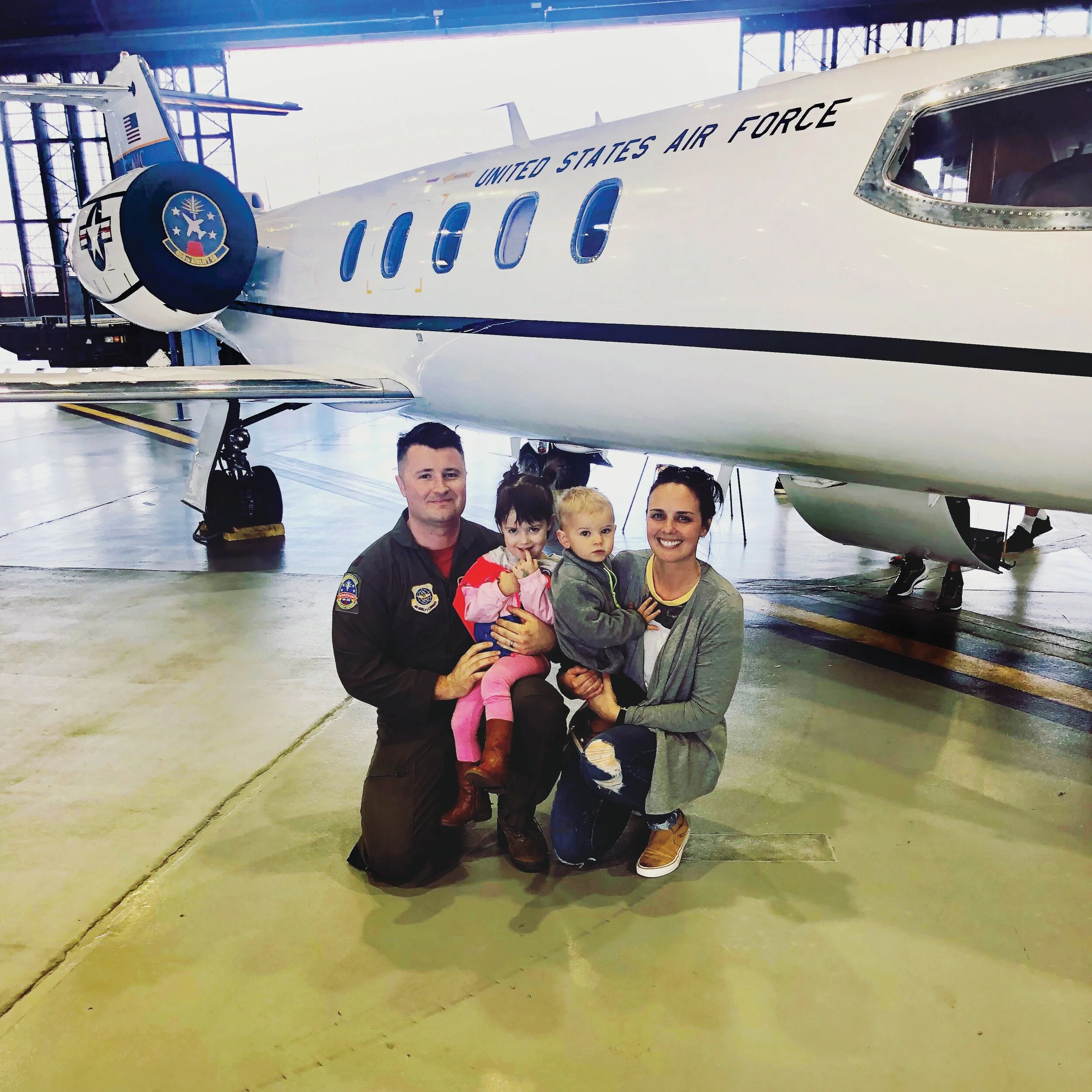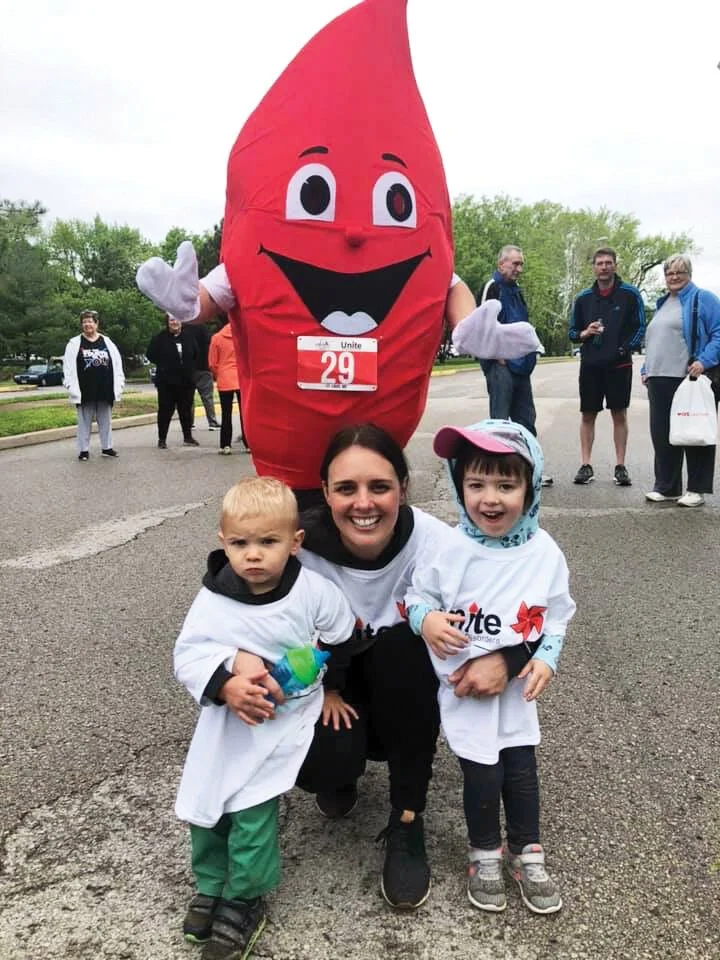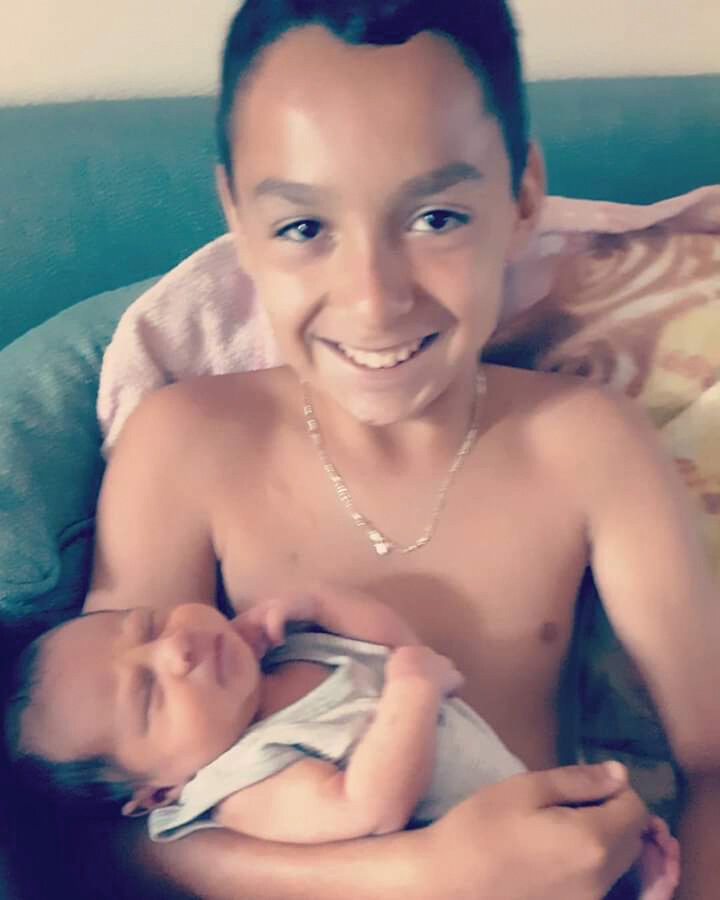By Justin Lindhorst and Maria Santucci Vetter
Members of the US military dedicate their lives to service. And for that, we give our sincere thanks to every member of the military, as well as their families!
Part of that commitment means being ready at a moment’s notice to pick up and move to a new city, a new state, or in some cases, a new country!
For active duty service members raising a family, deployment and frequent moves can be challenging – especially for those raising a child with a bleeding disorder.
Studies have shown that military family life includes prolonged separation, frequent moves and facing multiple stressors in a short time.(1) Further, families with military health insurance have been shown to experience access to care issues when compared to other medical benefits.(2)
This interview explores the challenges of military life from the perspectives of two families in the bleeding disorders community. We spoke with moms, Kalee and Denise, and their spouses and active duty service members, Ryan and Jon. Their candid responses show what raising a child with a bleeding disorder in a military family is like.
First, let’s get to know you a little better. Where are you and your spouse from, where did you meet and how long have you been together? What is your spouse’s service division, rank, and current location?
Kalee: I am from Wisconsin, a little town called Mauston. My husband is from Palatine, IL a Chicago suburb. My husband, Ryan, and I met in college in Milwaukee, WI. We’ve been together since 2007 and married for 10 years. Ryan is in the United States Air Force based at Scott AFB, Major (O-4), currently deployed to Kuwait.
Denise: Jon and I are both from Fresno, California. We met while working at a hotel restaurant in Fresno. We dated for a year and have been married almost 15. My husband is in the Army, E7, currently stationed at Scofield Barracks in Hawaii at Division Artillery doing many jobs. His main position is as a nurse, but he has done other tasks including running the ER in Kuwait and drill sergeant at Fort Benning Georgia, to name a couple.
What were your first thoughts or concerns about becoming a military spouse/family?
Kalee: I was too young and naive to know what the military was all about. To my 22-year-old self, I was in love and it was an adventure. It still is!
Denise: My hubby joined the army young. Looking back, we may have chosen differently but we are very thankful for the army healthcare.
Tell us about your family. Was there family history of a bleeding disorder?
Kalee: We have 2 children, Penny almost 4—carrier status unknown, 2-year-old Henry who has severe hemophilia B, and we have a baby boy on the way due in January. We had no bleeding disorder history whatsoever.
Denise: Jacob is 13 years old and has severe hemophilia B, 9-year-old Cora has mild hemophilia B and is a carrier, 7-year-old Ava and 3-year-old Emma are not affected, and our youngest, 3 month-old Brody, has severe hemophilia B. I am a carrier and my levels put me in the mild range as well. Since I was adopted my parents had no idea my factor level was so low and looking back so many instances make much more sense.
Jacob
How was your child diagnosed; how did it affect your family?
Kalee: Henry was diagnosed 2 days after his birth when his circumcision would not stop bleeding. At first, it really shook our family. As time has gone on it has made my husband and I even closer. My son’s hemophilia has made me step back and really appreciate the important things in life. It is still so new to us and we are constantly learning, but I feel like it has made us slow down, smell the roses and be more patient parents.
Denise: Jacob wasn’t diagnosed until 6 months old during a routine heel stick that bled excessively. We ended up in the ER where he was tested. We were able to get the girls tested about 2 years ago as part of a case study. Jacob’s diagnosis was such a shock. Even worse, right after we found out, my husband had to deploy for the first time. I ended up going home to my parents to have additional help while he was gone. It was very hard for my hubby and me. We knew he was going to be gone for a significant amount of time – it ended up being 15 months in Iraq. When Brody was born, we knew what to prepare for and had him tested right away. At 8 days old we confirmed that he has severe hemophilia.
Jon: The initial unknown regarding what to expect from day-to-day was hard. It was very difficult to send my wife and newborn child to her mother’s as I deployed to Iraq. I worried tremendously but did feel good that they were in the hands of other family members while I was away.
Have your feelings about your child’s diagnosis changed over time?
Kalee: In the beginning, the devastation of not having a, “healthy newborn,” was overwhelming. It took about a year for us to really catch our breath. There was so much to learn and at first, the scary stuff was front and center in our brains. As soon as Henry went on prophy, our lives changed. Things shifted back to normalcy. Other than some extra work with infusions and give or take some hard days, bad infusions, or emergencies, we feel we are in a really good place with the diagnosis.
Denise: The shock gives way to acceptance and things do get easier. Self-infusion has been a game-changer for us. Jacob infuses himself (with us there) and that has been a big confidence booster. He also no longer has a port, so fevers don’t scare me as much as they used to. At times, Jacob doesn’t realize how various situations can affect him compared to kids who don’t have hemophilia. Things have gotten easier since the initial diagnosis, yet there are always times of worry and concern, though those times have become fewer and further. With Brody, the whole process is starting again.
Jon: For me, it hasn’t changed too much really. Especially after we received additional diagnoses for my oldest daughter, my wife, and now my 3-month-old, the challenges take on different forms as time goes on. I’ve extended my military career in part to make sure my family retains access to care.
Military Life
How often has your family experienced a PCS (Permanent Change of Station) and what has that experience been like when caring for a child with a chronic health condition?
Kalee: We have moved 6 times, but only once since Henry was born. Moving has been tough, time-consuming and emotional. Organizing everything, speaking with new people and explaining the diagnosis is the most exhausting part so far. For example, our last pediatrician was in the know about sub-q options for vaccinations. Getting the new pediatrician on board took about two weeks because he did not take my word for it. I had to drag both kids to the appointment, have the sub-q vaccination request turned down, contact the HTC, get the okay from the HTC, get in contact with the pediatrician to discuss, then have the pediatrician go to the immunization clinic in the military treatment facility (MTF) to explain the reasoning for the sub-q vaccinations.
Ryan: I was actually supposed to deploy approximately 30 days after Henry was born. Due to the challenges and stress associated with his diagnosis, combined with the support my family needed during this time, the military deferred my deployment. This was immensely helpful to get a handle on the situation and come to terms with what Henry’s care and medical needs would be. I eventually deployed when Henry was closer to 2 years old. While it was indeed stressful for my wife to handle Henry’s needs on her own, his diagnosis has become a normal part of our lives and we are comfortable with the situation at this point. It’s a process for many things. Getting new care providers is also stressful. We were very comfortable with our caregiver in New Jersey but having to search and find a new one is time consuming, stressful and repetitive.
Denise: We’ve moved a lot. Officially, we have PCS’d I believe 7 times, but we have moved for one reason or another about 14 times. Moving and re-establishing care is always an issue. First, we have to get the move approved by the Exceptional Family Member Program (EFMP). Once we move, we have to see a primary care physician before we receive a referral for the hematologist. We have faced challenges where the people we’re working with have a hard time understanding the nature of hemophilia because my son does not appear to be “disabled.” Once we had to stay in a hotel for over two months while we waited for a more permanent residence. At the time, with 4 kids and 2 big dogs, being stuck in a tiny room was pretty tough, to say the least. We basically have to make sure we always have the medications and supplies on hand to prepare for the move until we can get to the next semi or permanent address.
What has been your greatest challenge as a military family raising a child with a bleeding disorder?
Kalee: Our greatest challenge has been the medical side of it all. In the military, your doctors can be deployed, or PCS’d and you find yourself starting from scratch with someone new. In the 3 years we were on the East Coast, I alone had 3 different primary care physicians. Henry has already had 2 different primary physicians. Also difficult is receiving medical care when traveling away from the home station. When my husband is gone for long periods, it makes more sense for me to stay with my family. This can create challenges for receiving medical care. Making sure we have a treatment center and infusion options while not at our home station has been challenging.
Ryan: Being geographically separated from extended family is the greatest challenge. It would be far easier to have grandparents, aunts and uncles nearby to help with support when we need to do infusions or ER visits, etc.
Denise: I would have to say the greatest challenge is the constant moving and trying to re-establish medical care. When my husband is awaiting orders, we have additional screening to go through to make sure our placement includes access to the medical professionals required for our family. Every move requires finding a new primary care provider, then we are referred to a hematologist. We do our best to make it through these “in-between” times, but sometimes the wait conflicts with our needs – especially if a factor script expires or we get low on product before we can secure an appointment.
Have you experienced any issues accessing care or services?
Kalee: Our spouses can be gone for long stretches for training and deployments. During those times, being alone and away from family is difficult with small children. Especially if you just moved to a new place and haven’t made good friends yet. This is my current situation. I haven’t had the chance to really make solid friendships where you can ask them for family-style favors (i.e. drop kids off in an emergency). I am currently alone as my spouse is deployed and my family is 5 hours away. It’s easier for me to drive and stay with my family and have help for an extended time; however, there are hardly any nearby TRICARE military treatment facilities where my family lives. This means we have to rely on out-of-network care and getting that approved is hard, especially because I’m told it is my choice to go stay with family, which is true, but it’s not my choice to have my spouse gone and not have any local help.
Ryan: Another issue is explaining Henry’s diagnosis to new doctors, nurses and medical insurance coordinators every time we move or switch primary care providers. Most general care practitioners seem to have limited knowledge of the specific needs and we have to do a lot of educating to be given referrals and proper attention.
Denise: For the most part we’ve been very fortunate and have not experienced too many problems accessing care or services other than those I described earlier. I remember one time the pediatric hematologist we were seeing closed his practice. It was quite a scramble to find another physician versed in hemophilia and then obtaining a new referral. There was a lot of back and forth on the phone, and when we finally got things settled, the hospital was over two hours away. That was definitely challenging!
How have you worked to overcome or mitigate any challenges?
Kalee: I have focused on getting involved in the hemophilia community and meeting other families. It has helped me to talk out any challenges with other experienced parents. I reach out to get their perspective and advice. I have attended a couple of educational dinners and the Coalition for Hemophilia B Symposium this last March as well as their Meeting on the Road in St. Louis. I also joined the St. Louis Gateway Hemophilia Foundation. I find that the more I attend and the more hemophilia families I meet, the more I learn!
Ryan: To help educate providers and advocate for Henry’s needs, my wife keeps meticulous records of all doctor visits, medical records and infusions. The military ensures family members who need special medical services are prioritized and considered to determine an optimal balance between the military member’s career path and the family member’s medical needs. Working together helps minimize challenges. Henry’s diagnosis was at the forefront of the military’s consideration when I was last re-assigned to a new installation. We were very fortunate that the assignment I was given provided excellent care for Henry and was also my top choice for career goals.
Denise: We are very grateful for the care we receive through TRICARE. I always try to do my homework to minimize the impact of all the moving around. I am very persistent when it comes to my kids and their care. As soon as we move, I quickly set up all the required primary care appointments so we can get the appropriate referrals in. That’s one thing I do wish was different – for those with lifelong chronic illnesses, requiring a primary care appointment for a referral to a specialist can create setbacks and delay our access to care. Hopefully, one day, that will change.
What has been your greatest success?
Kalee: So far, our greatest success is doing home infusions with a nurse once a week. We were not sure how Henry would react and were told if it didn’t go well, we would need to have a port placed. I worked with him on play therapy and tried to stay organized with infusions and make it a family event. We usually do popsicles or suckers and get pizza and wings. It’s now a family affair - we all help. Our daughter Penny is our bandage girl, my husband and I prep the medication with Henry and let him pick which spot he wants his infusion. He’s come a long way from being burrito wrapped and needing 3 people to hold him steady - now it takes just 2 and Henry mostly sits still.
Ryan: Generally speaking, our biggest success with Henry’s diagnosis has been learning to understand hemophilia and coming to terms with how manageable it is. Once we realized children who grow-up with hemophilia today live very normal lives with proper care, it made the scope of what we were dealing with seem much easier to handle. The care and consideration we have received from the military with Henry’s diagnosis has been excellent.
Denise: Everything we’ve gone through has made us stronger and the ability to adapt has become one of our strengths as a family. That adaptability has helped us immensely as a family. Another great accomplishment occurred when Jacob learned to self-infuse. He has also loved the opportunity to go to bleeding disorders camp.
Jon: Serving our country and being able to provide my children access to the care and services they need has been my greatest success. It definitely hasn’t been easy, but we do it daily and will continue to get through it together.
Resources
What kind of resources are available to military families? What other issues have you encountered?
Kalee: Our main resource has been the Exceptional Family Member Program (EFMP). This program provides advocates to help you navigate parts of the medical system, provides childcare, and has events to connect with other families. I think the military tries hard to take care of their families. The hardest part is taking advantage of all the resources they offer especially when the military member is deployed. We have been able to obtain childcare through the EFMP program. It was a challenge finding the right people, but the option is there.
Many resources exist, but some take a lot of paperwork and a lot of effort to be able to participate. There are always requirements required to be a part of the program. In my case, there always seems to be a missing document. It’s never simple and straight forward, there are always a bazillion steps, or that’s what it feels like to me. There’s a lot of red tape. In terms of support, it all depends on the service member’s squadron and whether they have good leadership and value connection. Some really reach out and help each other while others are more private.
Ryan: There are many resources available. For us, the best resource has been Respite Care, which offers up to 40 hours per month of childcare to help alleviate the challenges associated with military children with difficult medical diagnoses.
Denise: Juggling the medical stuff is a challenge, but school changes for the kids have been incredibly difficult. Two of the 3 who are now in school are having a hard time adjusting and adapting. That isn’t because of hemophilia, but because of the military lifestyle. Concerning childcare, since our family is large and we now have 2 with severe hemophilia, I’ve never had them in childcare. One of our children has severe anxiety so it makes the moves and transitions even harder than normal.
In Closing
How has having a child with a bleeding disorder changed your life and what does the future hold for your family regarding continuing military service?
Kalee: Before Henry’s diagnosis we felt like we knew our path in life. We could see it all spelled out. Now it’s just given us pause. We are having to slow down and really think through our major life decisions. We don’t know what our future holds for sure. We are grateful we have the option to continue with the military and have very good healthcare.
Ryan: Henry’s diagnosis has limited some options. For example, pursuing overseas assignments and certain assignments in remote locations that do not have the appropriate medical support for hemophilia. However, my wife and I decided even before Henry was born that overseas and remote assignments were not something that we were interested in pursuing while raising our children. In the grand scheme, however, the diagnosis has had minimal impact on my personal career goals.
Denise: Even though we think it didn’t, our lives have changed so much. My husband always wanted Jacob to play contact sports just like he did, so coming to terms with that reality was somewhat difficult. My husband has 4 more years of service and would love to be able to get out at the 20-year mark, but now with the baby’s diagnosis, we are worried about our financial future. With 3 of our children requiring specialty medications, making any change is a little scary.
What advice would you give to another military family with a bleeding disorder?
Kalee: The hemophilia community reminds me, in a sense, of military families - it is an instant bond that happens because of a shared lifestyle. The advice I would give a new family would be to get out there and join the hemophilia community. I am so glad I did! It has helped me overcome fears. I’ve learned a ton and have made new friends!
Denise: Staying strong is the hardest, yet the best thing to do. There is always hope and there will always be others who are going through, or have gone through, similar times. Although it’s often harder to say than do, reach out for help if you need it!
Resources:
Huebner, Chadley. (2018). American Academy of Pediatrics. Health and mental health needs of children in US military families. (143,1) doi: 10.1542/peds.2018-3258
Rapaport, Lisa. (2019). Physicians Weekly. US military families face challenges getting healthcare for kids. https://www.physiciansweekly.com/us-military-families-face/


